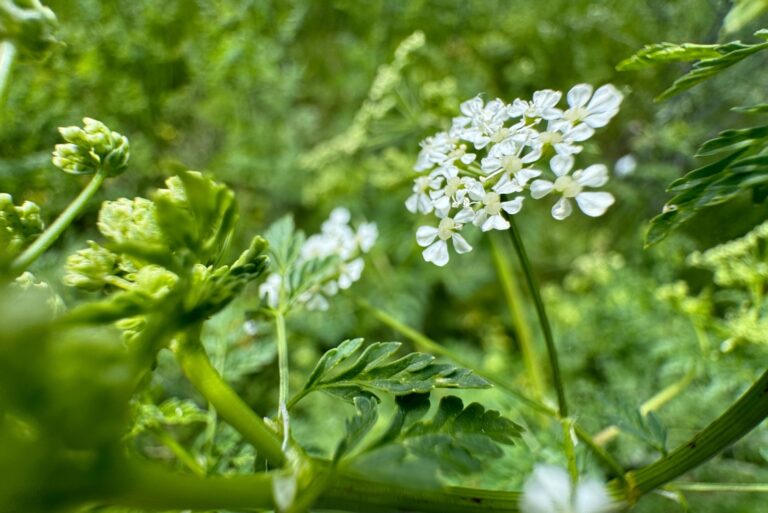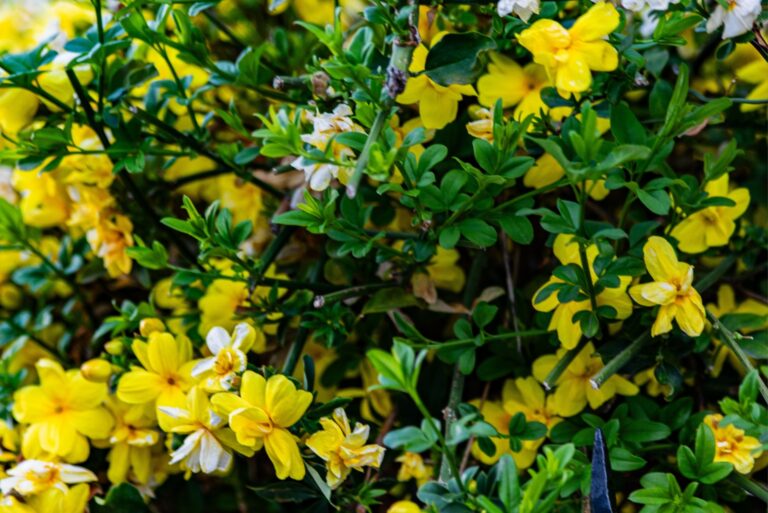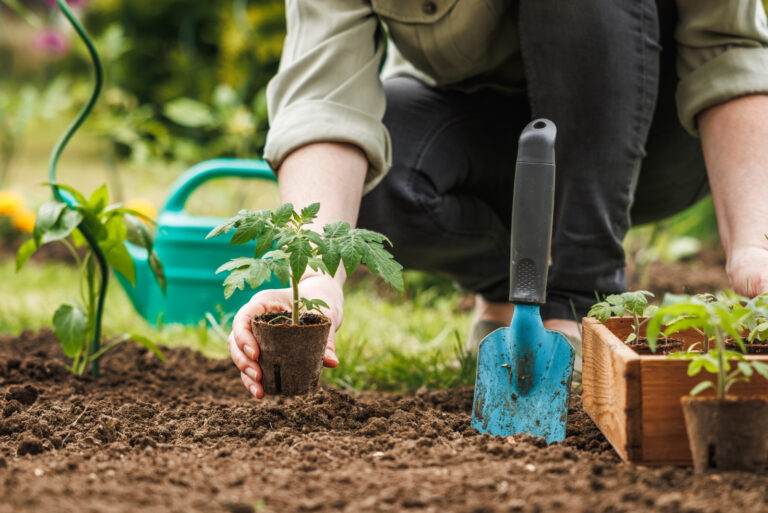10 Illegal Backyard Crops In South Dakota That Catch Many Homeowners By Surprise
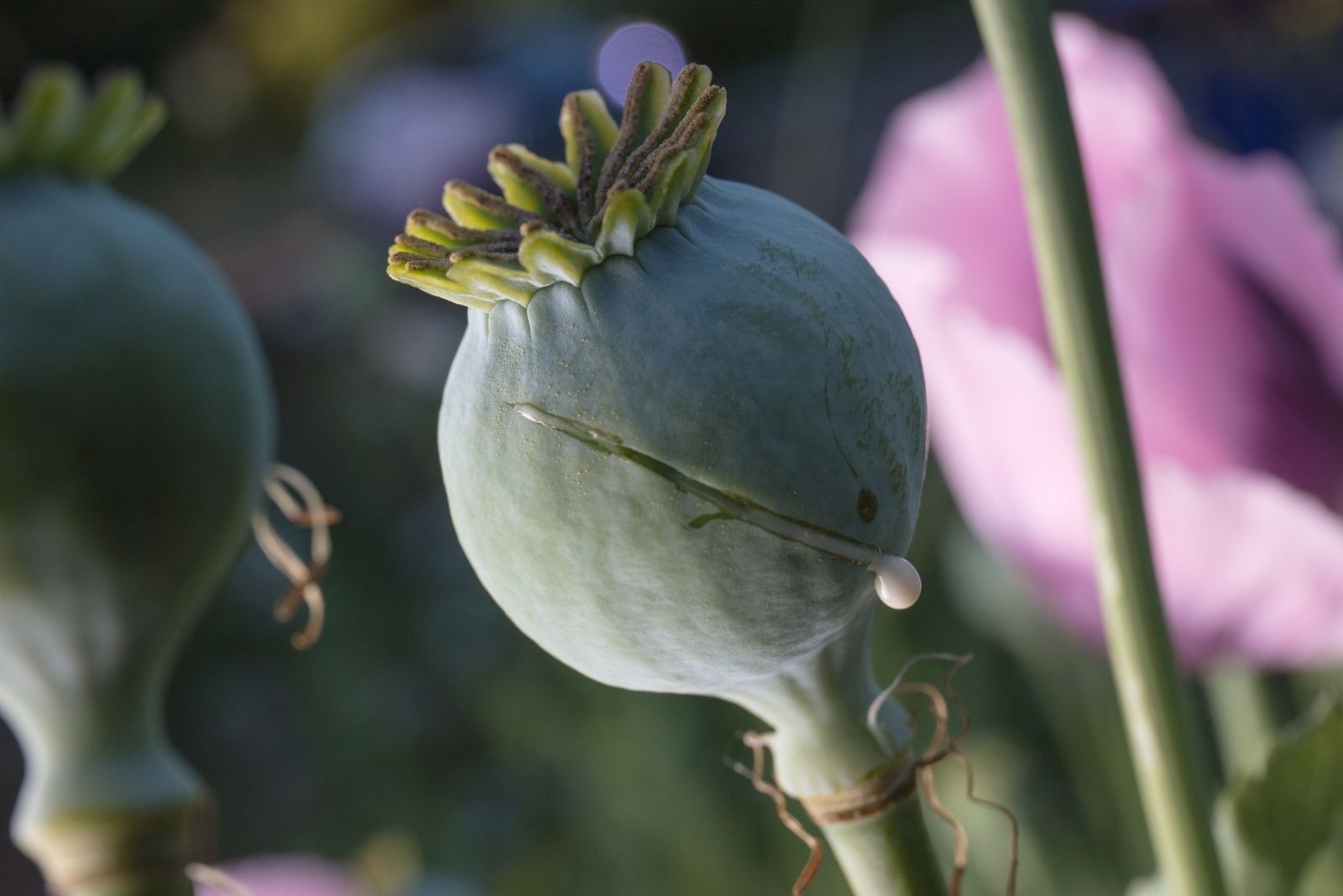
Growing your own food feels like the perfect way to enjoy fresh produce from your backyard. It’s rewarding, healthy, and connects you to the land. But in South Dakota, not every plant is fair game. Some crops that seem harmless are actually restricted by state or federal law.
I’ve found that knowing the rules ahead of time can save you from surprise fines or legal headaches. A little research now keeps your garden safe and trouble-free.
1. Cannabis Plants
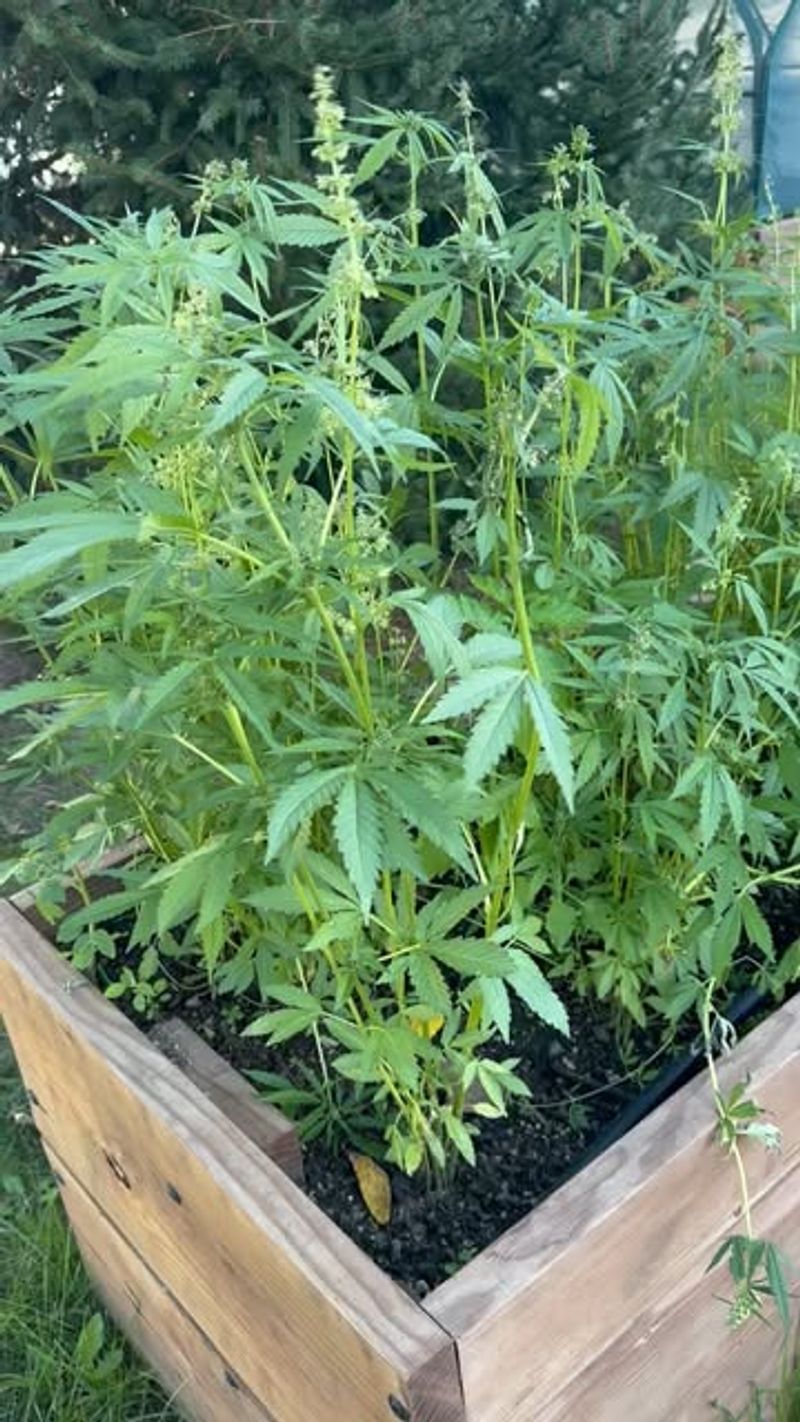
Despite growing acceptance in other states, recreational marijuana remains completely illegal to cultivate in South Dakota. Medical cannabis laws exist but come with strict requirements and licensing.
Homeowners who plant these thinking it’s a gray area often face serious criminal charges. Law enforcement takes cannabis cultivation seriously, even for personal use. Penalties can include hefty fines and possible jail time depending on the number of plants.
South Dakota residents should understand that federal law still classifies marijuana as a Schedule I substance, adding another layer of legal complexity.
2. Opium Poppies
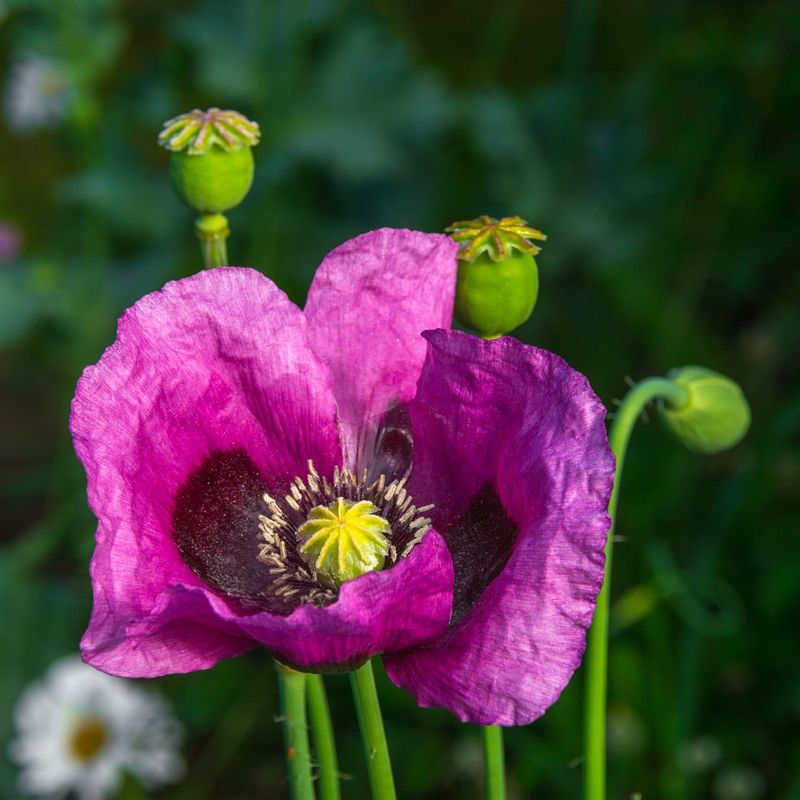
These beautiful flowers might look innocent, but growing Papaver somniferum is federally prohibited across all states including South Dakota. The plant produces compounds used to make illegal narcotics.
Many gardeners accidentally purchase seeds online without realizing the legal implications. Ornamental poppies like California or Oriental varieties are perfectly legal and make great alternatives. The difference lies in the specific species and its opiate-producing capabilities.
Authorities can prosecute anyone cultivating opium poppies regardless of intent, so always verify species before planting any poppy variety in your South Dakota garden.
3. Coca Plants
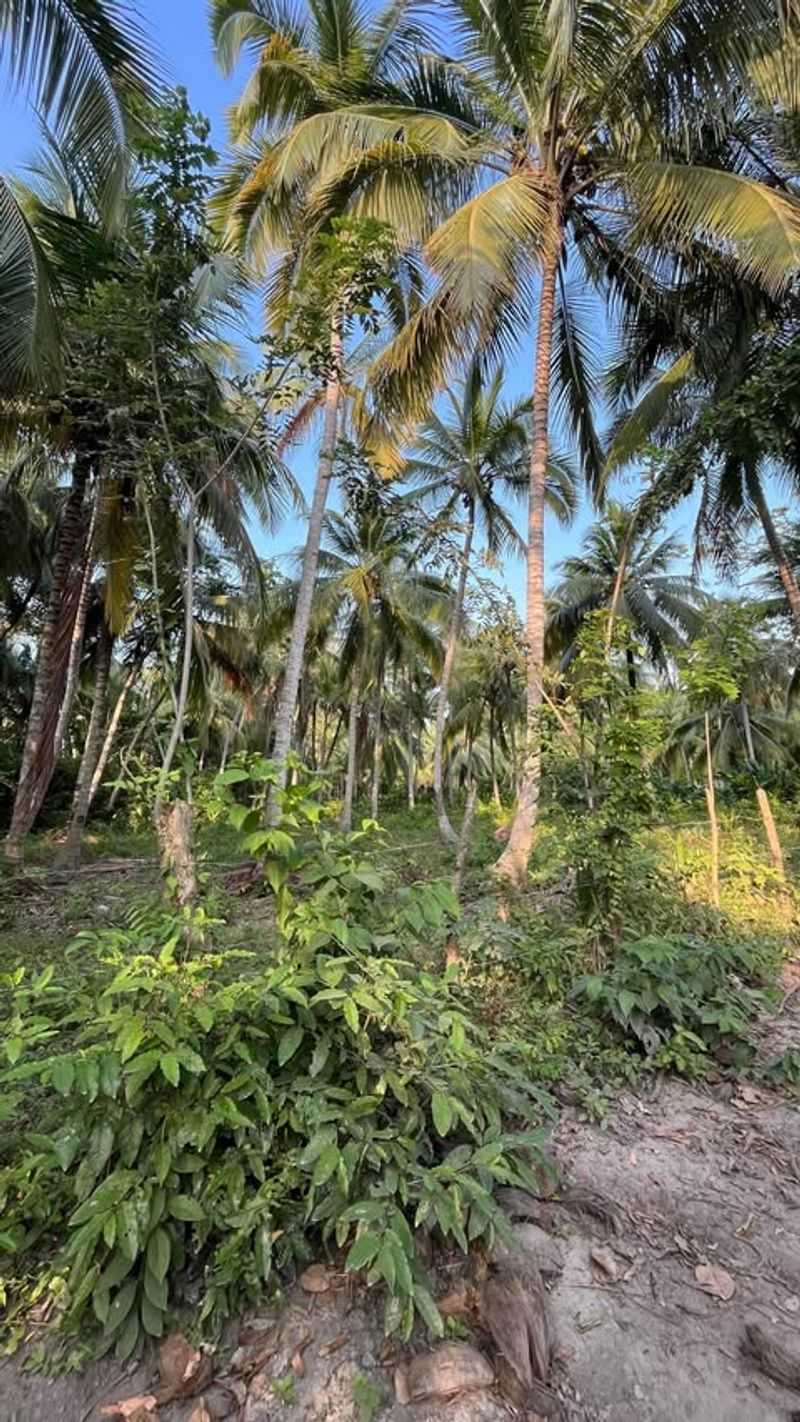
Known for producing cocaine, coca plants are strictly forbidden throughout the United States. Growing them in South Dakota carries severe federal penalties. Some people mistakenly believe small quantities for tea or traditional purposes might be acceptable.
Federal law makes no exceptions for personal or cultural use of coca plants. Possession of even a single plant can result in criminal prosecution.
South Dakota homeowners should avoid purchasing seeds or plants from international sources that might offer them. The risks far outweigh any perceived benefits, and legal consequences can be life-changing.
4. Prohibited Noxious Weeds
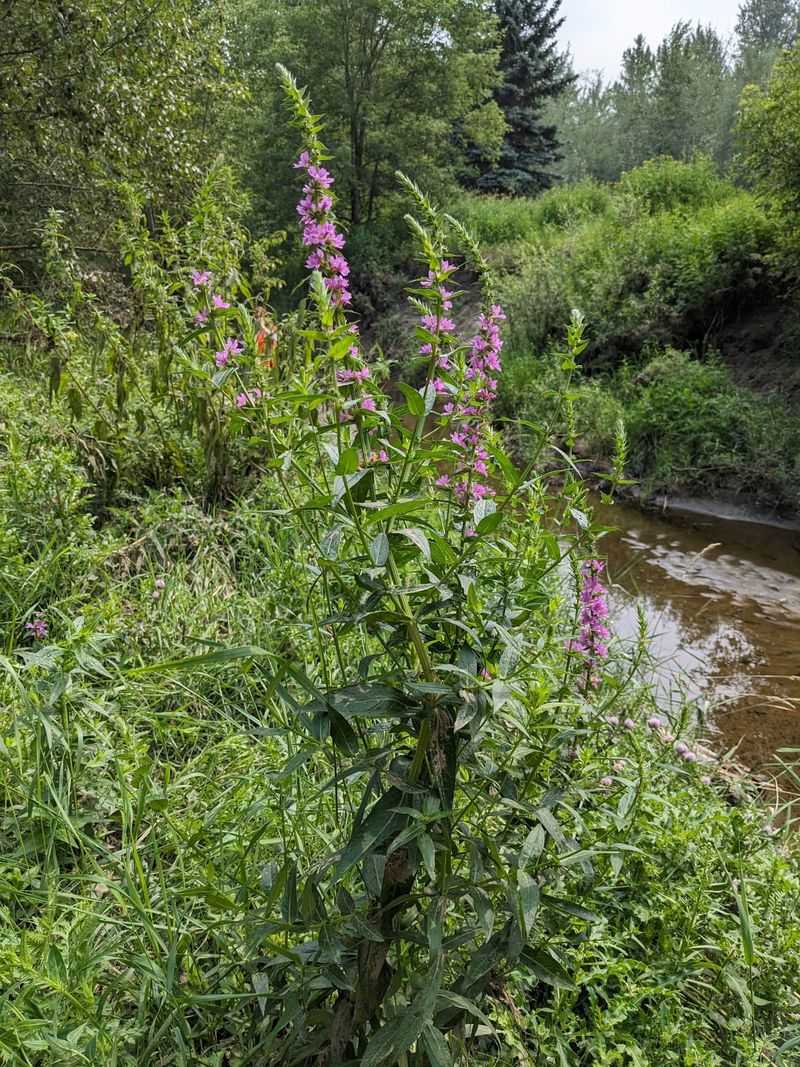
South Dakota maintains an official list of noxious weeds that property owners must control and cannot intentionally cultivate. Species like leafy spurge, purple loosestrife, and Canada thistle damage native ecosystems and agricultural lands.
Allowing these to grow can result in fines from county weed boards. What surprises many homeowners is that ignorance isn’t a defense. Property owners are responsible for identifying and removing these invasive species.
Some plants that look attractive or seem harmless actually cause millions in agricultural damage annually across South Dakota farming communities.
5. Kudzu Vine
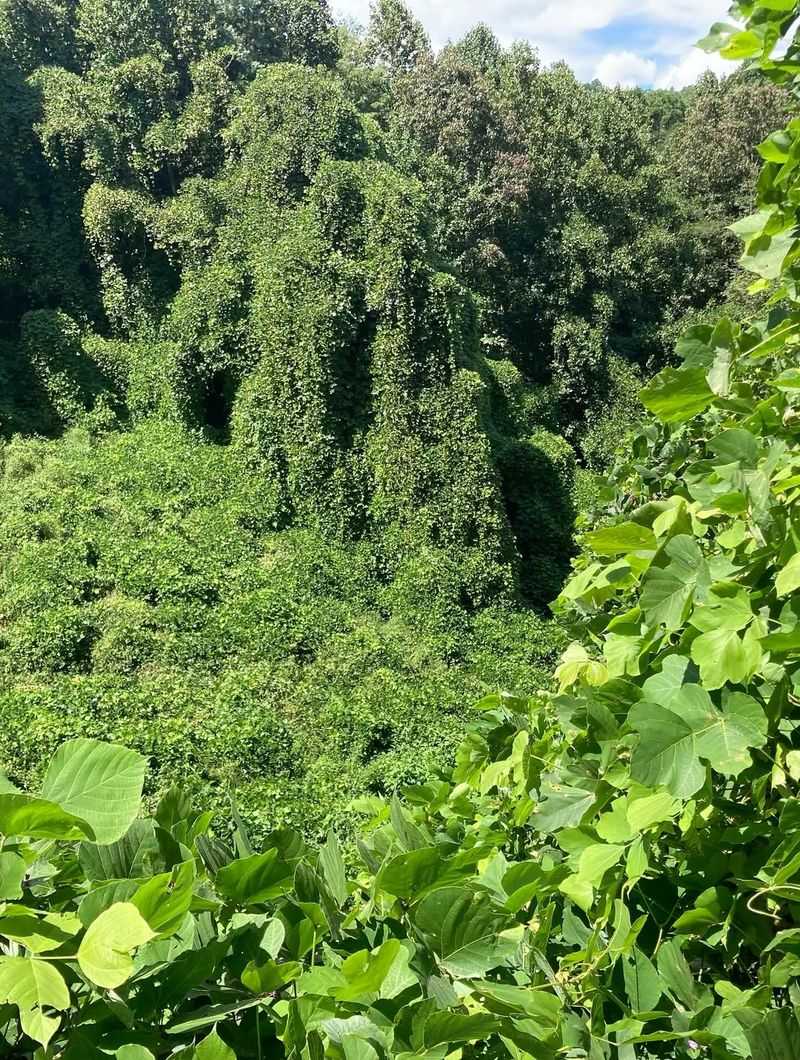
This aggressive vine earned the nickname “the plant that ate the South” for good reason. Kudzu is banned in South Dakota due to its ability to smother native vegetation and destroy ecosystems. The plant can grow up to a foot per day during peak season.
Homeowners sometimes obtain kudzu thinking it will provide quick privacy screening or erosion control. However, once established, it becomes nearly impossible to eradicate.
South Dakota agricultural officials work hard to prevent this invasive species from gaining any foothold. Planting kudzu violates state regulations designed to protect farmland and natural areas.
6. Giant Hogweed
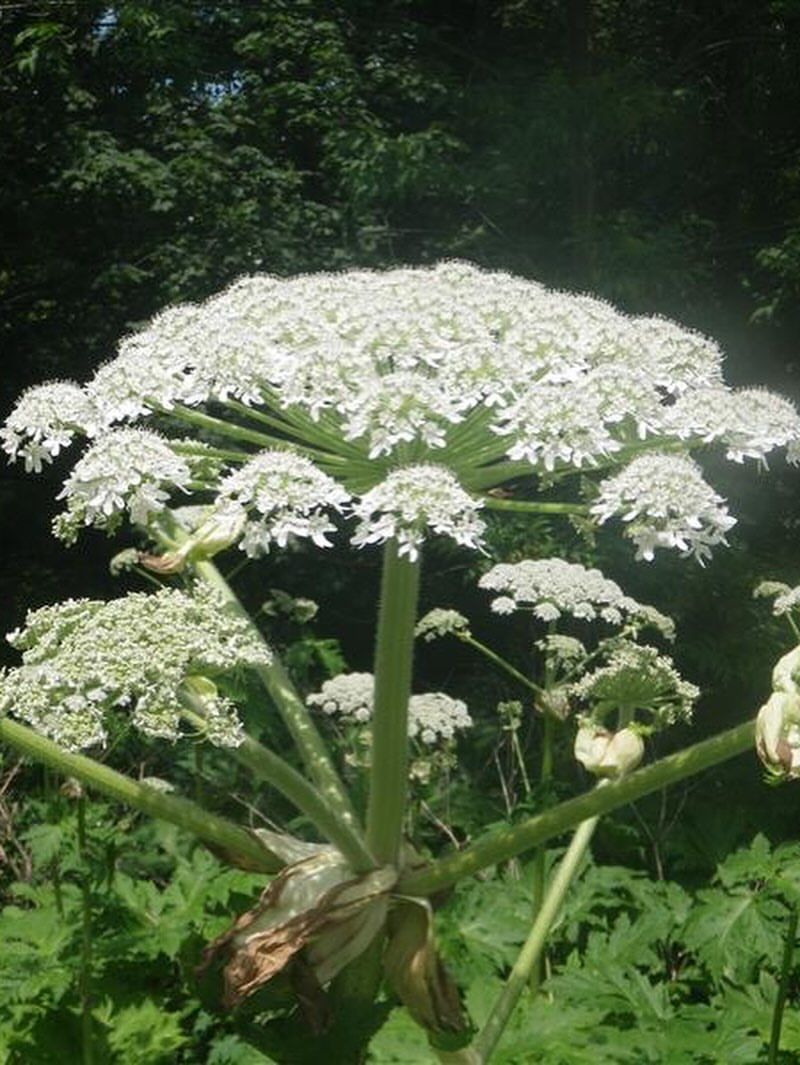
Giant hogweed poses both ecological and health dangers that make it illegal in South Dakota. The plant’s sap contains toxic chemicals that cause severe burns and blistering when exposed to sunlight. Children and pets are especially vulnerable to accidental contact.
Reaching heights of 15 feet, this invasive species quickly dominates landscapes and crowds out native plants. Many people confuse it with harmless look-alikes like cow parsnip.
South Dakota residents who discover giant hogweed on their property should contact authorities rather than attempting removal themselves, as handling it requires protective equipment and proper disposal methods.
7. Japanese Knotweed
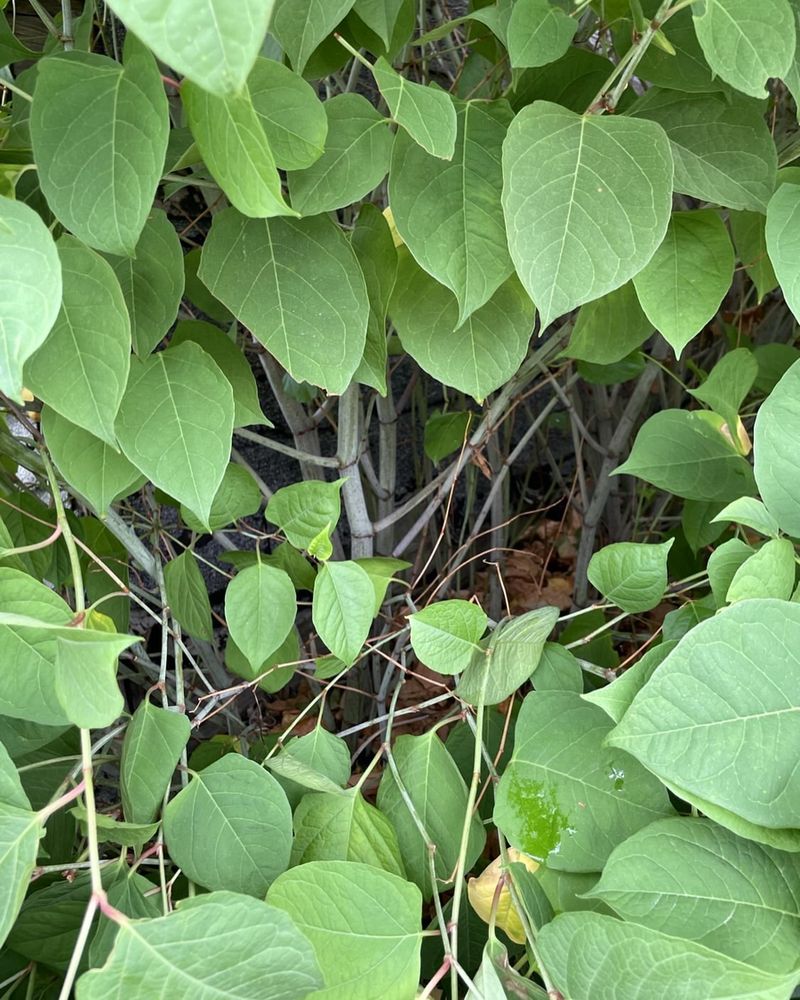
Often mistaken for bamboo, Japanese knotweed is banned in South Dakota because of its destructive growth habits. The plant’s root system can damage building foundations, crack pavement, and penetrate underground utilities. Once established, it spreads relentlessly through underground rhizomes.
Some homeowners initially plant it as an ornamental or privacy screen without understanding the consequences. Eradication costs thousands of dollars and can take years of persistent treatment.
South Dakota property values can plummet when Japanese knotweed is discovered. State regulations prohibit intentional cultivation, and landowners may face removal orders from local authorities.
8. Poison Hemlock
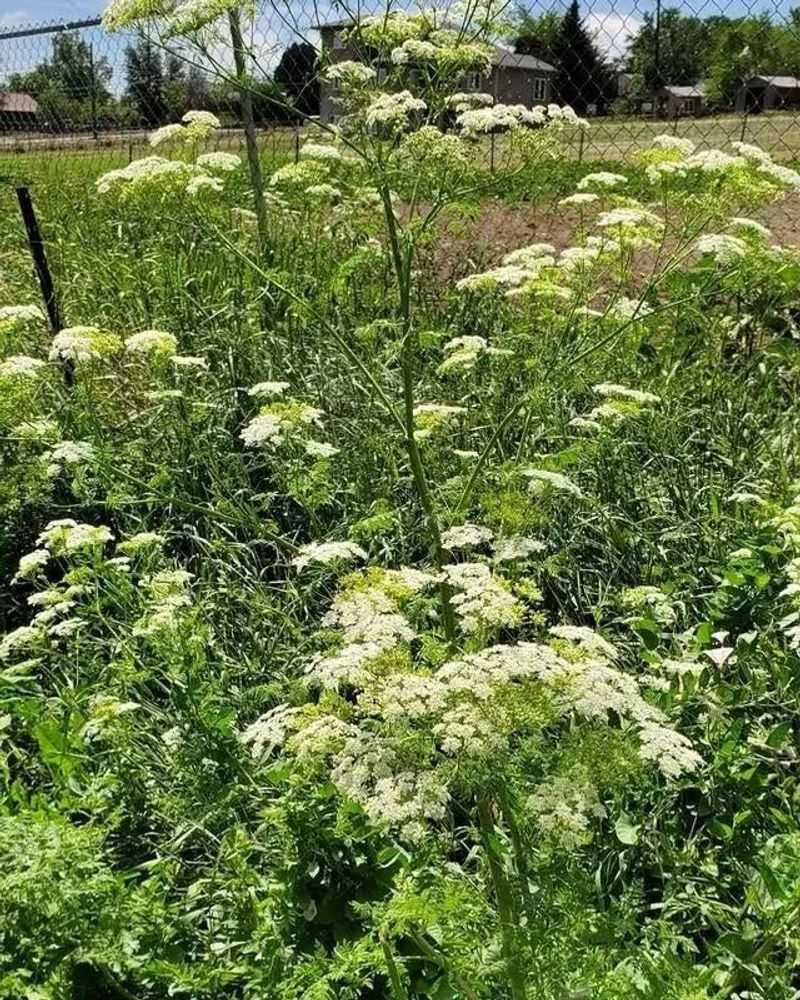
This highly toxic plant killed the philosopher Socrates and remains dangerous today. While not always explicitly banned, cultivating poison hemlock in South Dakota can lead to liability issues and local ordinance violations. All parts of the plant contain deadly alkaloids that affect the nervous system.
Homeowners sometimes allow it to grow thinking it’s a wildflower or confusing it with edible plants like Queen Anne’s lace. Children and livestock are at serious risk from accidental ingestion.
South Dakota residents should immediately remove any poison hemlock discovered on their property to prevent potential tragedy and legal complications.
9. Peyote Cactus
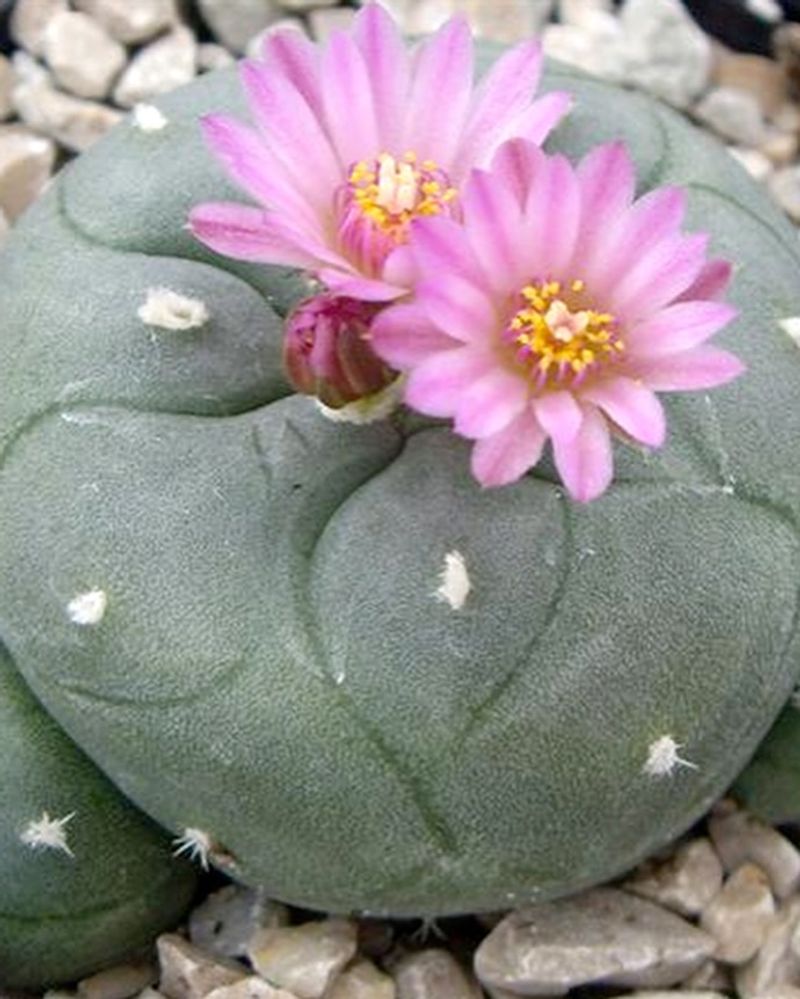
This small cactus contains mescaline, a powerful hallucinogenic compound that makes it illegal to grow in South Dakota without specific religious exemptions. Federal law restricts peyote cultivation to members of the Native American Church for ceremonial purposes. Casual gardeners have no legal protection.
Some cactus collectors unknowingly purchase peyote online from international sellers. Possession and cultivation carry serious federal penalties.
South Dakota law enforcement can prosecute anyone growing peyote outside protected religious contexts. Even claiming ignorance about the plant’s identity won’t prevent legal consequences if discovered on your property.
10. Certain Genetically Modified Crops
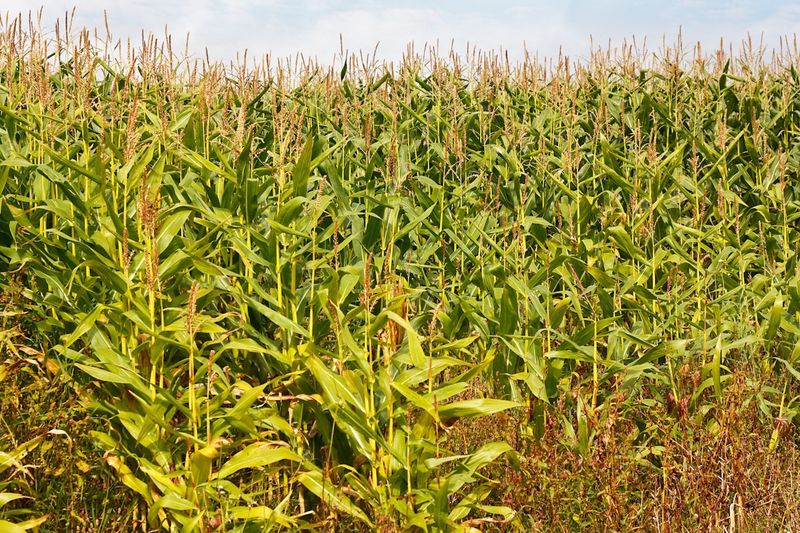
Growing patented genetically modified seeds without proper licensing violates intellectual property laws in South Dakota. Companies like Monsanto and others aggressively protect their seed patents. Farmers and homeowners who save seeds from GMO crops or obtain them through unofficial channels risk lawsuits.
Many people assume that once they buy produce, they can plant its seeds freely. With GMO varieties, this assumption can lead to expensive legal battles.
South Dakota’s agricultural economy makes seed patent enforcement particularly strict. Even accidental cross-pollination from neighboring fields has resulted in legal action. Always verify seed sources and licensing requirements before planting commercial crop varieties.

